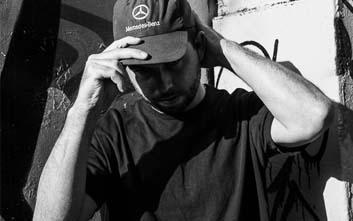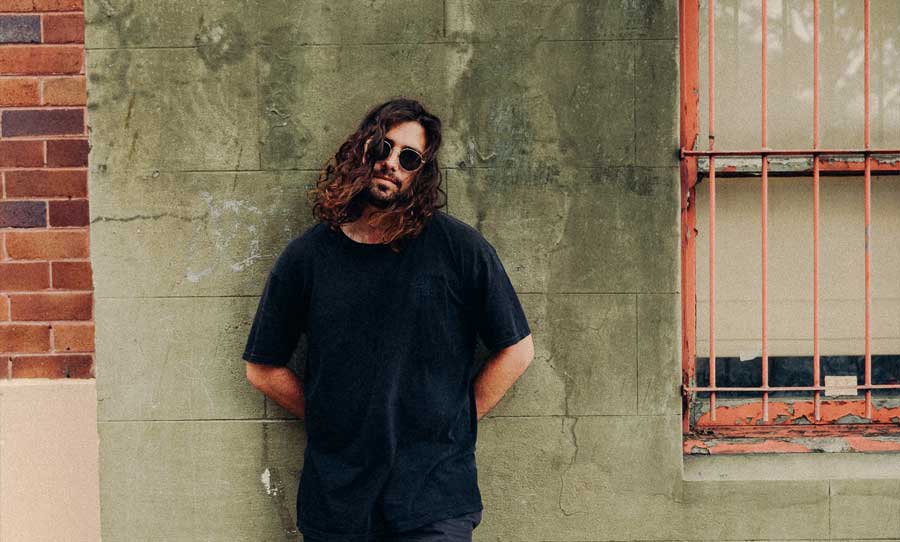For a man who seems to relish in silence, Jack Grace has caused his fair share of noise. Since dropping into our laps for the first time in 2015, he has released the marvellous EP River and a string of equally stirring singles ahead of IF I TREMBLE, a second EP due for release this year.
Though he may not claim it himself, his production style is as unique as it is enthralling. Capturing a quiet eminence akin to James Blake, Grace’s songwriting draws influence from gospel, trip hop, UK house and electronica. In other words, I couldn’t even tell you what to call it.
With IF I TREMBLE looming on the horizon, we caught up with Jack Grace at the Young Henrys brewery in Sydney for the latest.
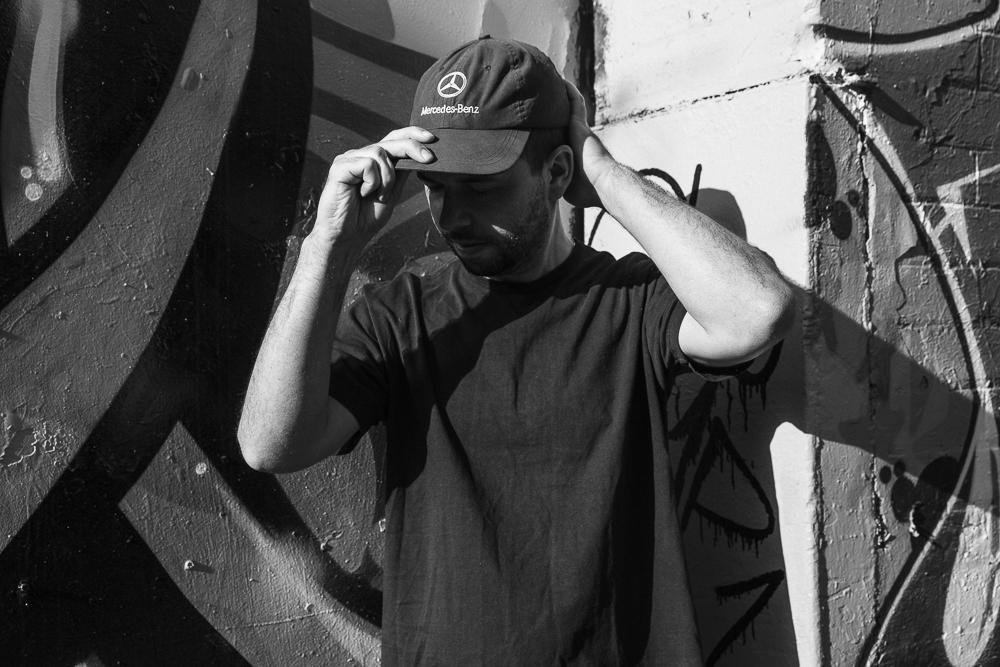
Intention, integrity, invention. This is the mantra of Jack Grace, a producer excited to give his music the treatment it deserves.
HAPPY: I was at your EP launch, and I loved how everyone was seated for the performance. I think it was the only seated show I’ve been to in 2017! Was that your decision?
JACK GRACE: Yeah, well I guess I’d been in that room before and been to a show there where people were sitting down. We made the decision early on, and then I kind of tailored the set to more of a sitting audience. I guess it was conscious, it was planned, yeah.
HAPPY: Nice.
JACK GRACE: I mean, we didn’t know if people would sit. We just asked if they would like to, and it worked.
HAPPY: It did. So had you performed in that same room before?
JACK GRACE: I had a friend who lived in that room, you know when I first got to Sydney seven or eight years ago he was living in that space, and we wrote an album there that we never put out. We spent a year in there working on it, so I knew the space pretty well from then, but I hadn’t been there for a long time before the launch.
HAPPY: Was that a complete coincidence then?
JACK GRACE: Entirely.
HAPPY: Very cool – I was going to ask if you had been inspired by anyone, or any other shows you’ve been to.
JACK GRACE: Yeah it was all kind of intertwined but with that show, I wasn’t directly inspired by a show that I’d seen. We wanted to do the launch in a space that just wasn’t a regular venue, and that’s where it ended.
HAPPY: Well, the first time I saw you play was in a church, it was a Red Bull Sound Select show. Is there an element of curation going on in picking these venues, or have I just been lucky?
JACK GRACE: No, there has been an intentional aspect to it. That was supporting Kelsey Lu, an artist I really look up to and love, so when that opportunity came up… I think she’s always going to be playing in an interesting space. We’re going to move into a proper venue for the next shows but I guess finding the right space for my music has been a bit tricky in Sydney at the moment.
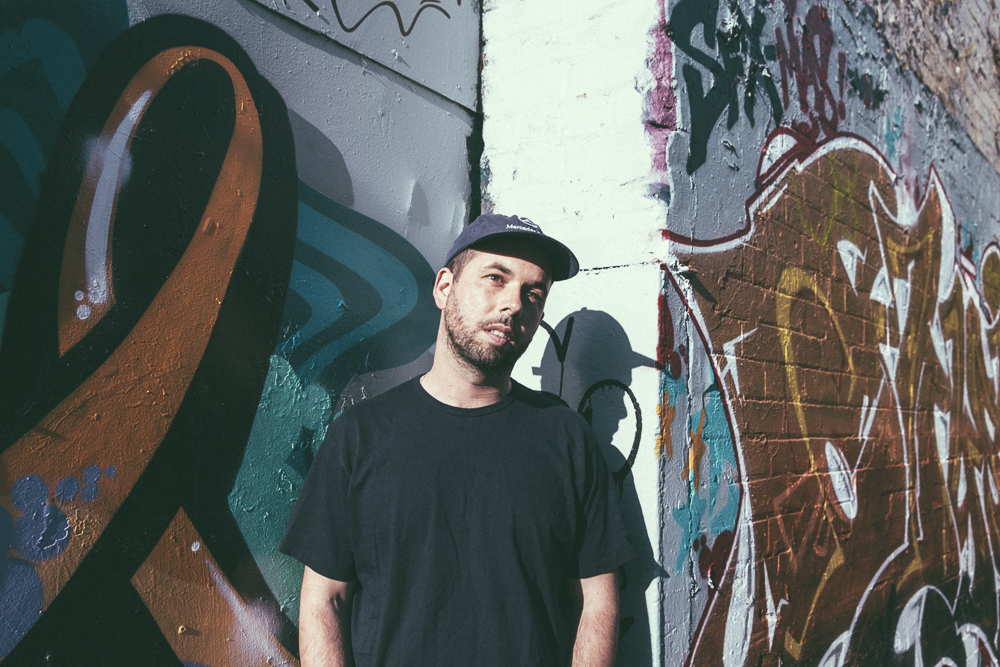
HAPPY: So you spend a lot of effort playing to the space?
JACK GRACE: Well it’s really hard to ignore it when you’re aware of the limitations a space has. We played Groovin The Moo this year, it was the next show we did after the Kelsey Liu show. And it was an entirely different show, I’ve just found I have to dovetail what I do to those spaces.
HAPPY: Where do you leave room for change or improvisation?
JACK GRACE: Breaking stuff down, you have to retain the integrity of the recording. But everything that we play can change every time, because it’s not to tracks it’s loops so if it doesn’t feel like we need to bring a kick in, we just won’t bring it. If it needs to be brought in, we will bring it in. These small changes, they do affect how the music feels in a space.
HAPPY: Live, and in your recordings, silence plays a huge part. Especially when you’re playing these venues where a crowd is intentionally quieter so I wanted to ask, what does silence mean to you?
JACK GRACE: It’s as important as playing a note, I mean, without getting too conceptual too quickly…
HAPPY: It’s an abstract question!
JACK GRACE: I guess it’s as effective as playing something. It is playing something. I think about it visually, like the use of negative space in a lot of the artwork is tied into the use of negative space on the record. And I think that the process I have is that I start with something minimal, then I either add to it until I feel like it’s finished, or I take away from it until I feel like it’s finished. The process is the same each direction, whether it’s taking elements out or adding elements in. You can find the finishing point in the same way.
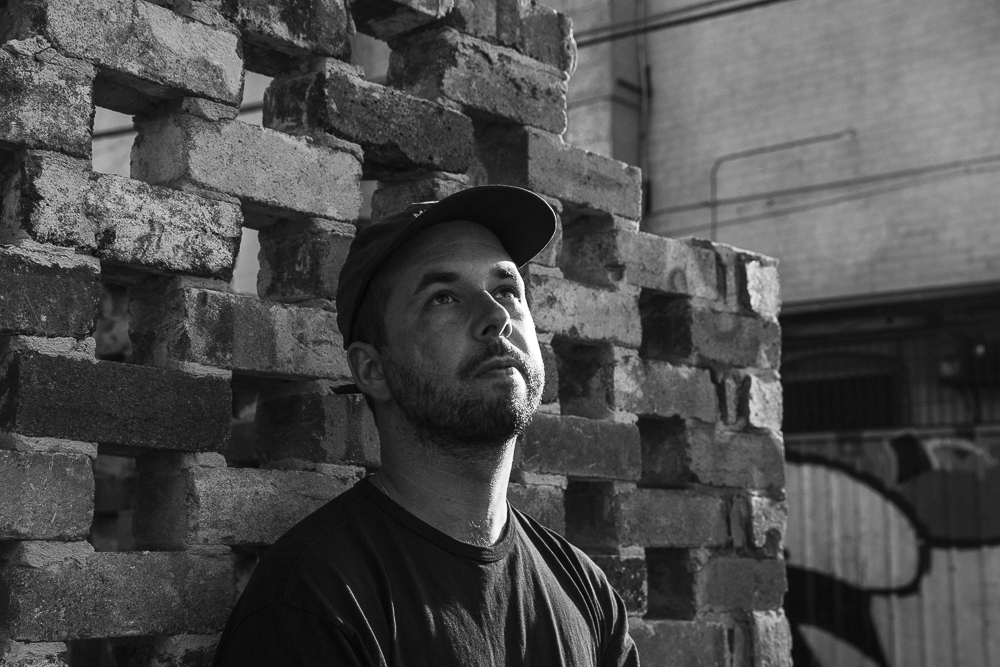
HAPPY: Are you comfortable in silence?
JACK GRACE: I think I’ve realised that I probably am more comfortable than other people. I know that when I go home after being in Europe, where seemingly people just communicate a lot more, there’s a lot more talking and being full on… I go and sit at my parent’s dinner table and it can be pretty quiet around there. I’ve realised that I’m pretty used to that.
HAPPY: The EP itself, it’s on the cards for early 2018. After listening to it a few times I’ve got to ask, is it a breakup record?
JACK GRACE: (laughs) No, not this one! It’s not a breakup record, it’s… I haven’t even thought about this yet. I guess it’s a record that tries to explore the ups and downs of relationships but it’s not specifically a breakup record.

HAPPY: Definite no on that one.
JACK GRACE: But it is sad.
HAPPY: Did you ever see writing about relationships as a tough thing to navigate? In the way that it’s probably the most written about situation in music.
JACK GRACE: I’ve never set out to do anything unique, I think I’ve always tried to do what I feel is natural. Early on I tried to find a new angle and ‘go deeper’ or something, I don’t really know what that means but I tried to find something that seemed more meaningful than what my everyday life was and it wasn’t there. You’re right, there’s so much music about relationships but that’s my life and that’s what I know.
HAPPY: So you’re not considering a wider picture?
JACK GRACE: I mean, when it happens to me, I’ll consider it. At this point I’m just trying to deal with what’s under my nose.
HAPPY: How long were you working on the EP?
JACK GRACE: On and off for… well I was working on an album and then the album became an EP. The album’s still there, so I’ve been working on that for probably a year and a half. The EP precedes the album.
HAPPY: You strike me as somebody who could be quite meticulous, so a year and a half actually seems quite quick.
JACK GRACE: Yeah, it is quick. It’s funny, as soon as I said ‘a year and a half’ I thought ‘oh, but that song was written three or four years ago’. I make a demo, then maybe at some point I’ll remember the demo then at some point bring it to life.
HAPPY: Consciously working on it then?
JACK GRACE: Consciously, a year and a half.
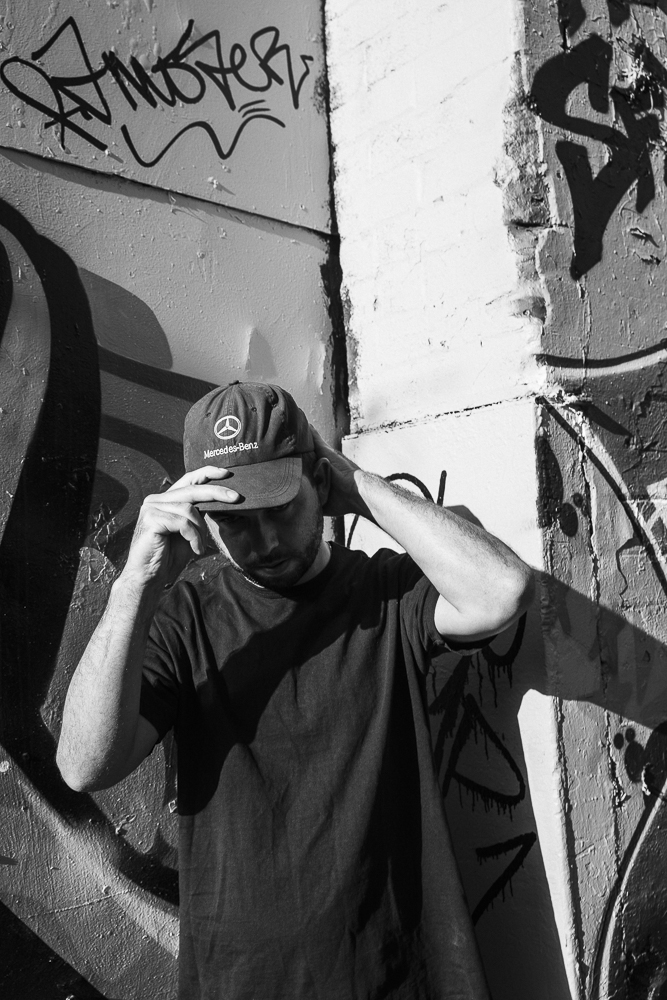
HAPPY: I read that the first EP had gestated over a longer period. And that, to me, felt like it called in a lot of ideas from a period that was just before its time.
JACK GRACE: 100 percent.
HAPPY: Especially a big UK thing coming in.
JACK GRACE: That was the frustrating thing with that EP, it was recorded a long time before it came out. Whereas this EP, I worked on finishing the tracks up until the time the first two tracks were released. But the old one, it just sat. And it wasn’t worked on for probably two years before it came out.
HAPPY: So IF I TREMBLE is more contemporary, but do those older influences still sit close to you? Or does something stagnate when you don’t work on it for two years?
JACK GRACE: It just becomes more of a snapshot in time than part of a conversation. It’s more like looking back at some photos you took a while ago and you’re like, ‘they’re not bad photos, it wasn’t a bad time, but it’s not something that I’m experiencing right now’. Whereas when I’m putting out music as I’m finishing it, it feels like it’s happening. And that’s been the goal, part of what I spoke to Of Leisure about when we started the process. I was like look, here it is because I want to start going soon. There’s another album that I’ve got there that I want to get out as well. I want to release music in more of an ergonomic way, I guess, a more fulfilling way.
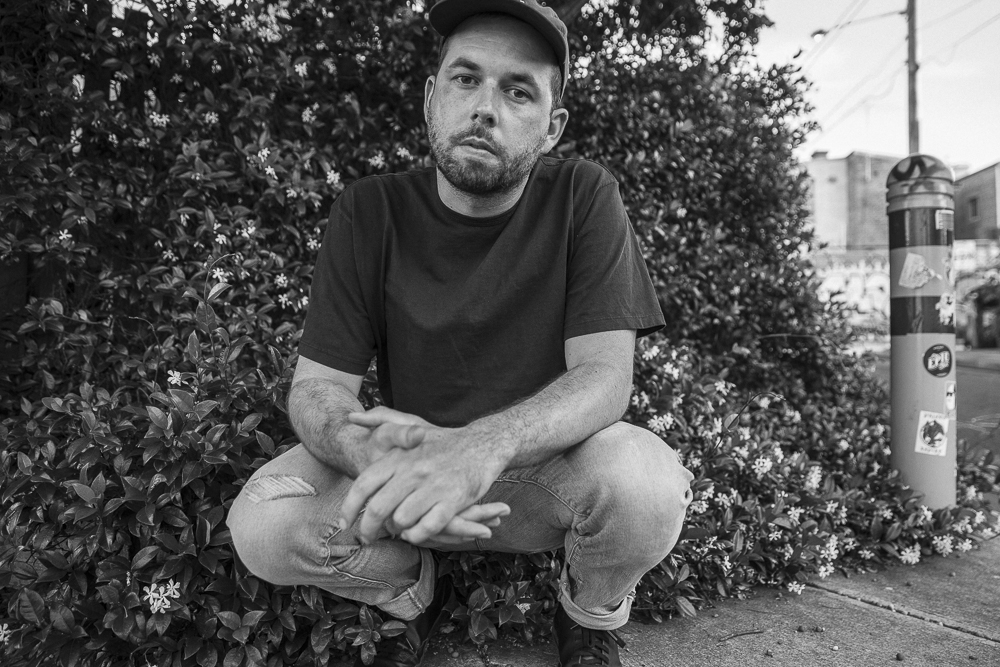
HAPPY: The last thing I want to know is, and perhaps this is too early because I didn’t even know you were working on an album, is this shorter gestation between writing and recording something you want to carry over?
JACK GRACE: Yeah. 100 percent. This team that I’ve got around me now, they’re the people that I want to keep working with, and I think if you can keep the continuity with the people that are helping you release the records it cuts down on a lot of the time spent where you’re trying to find a way to put it out. Like I can predict pretty much until mastering, then it’s out of my hands.
HAPPY: Of course.
JACK GRACE: But I know that I can hold down my end of the deal, and now I’ve got the other part more sorted than I have before. Music can come from my laptop to people quicker.
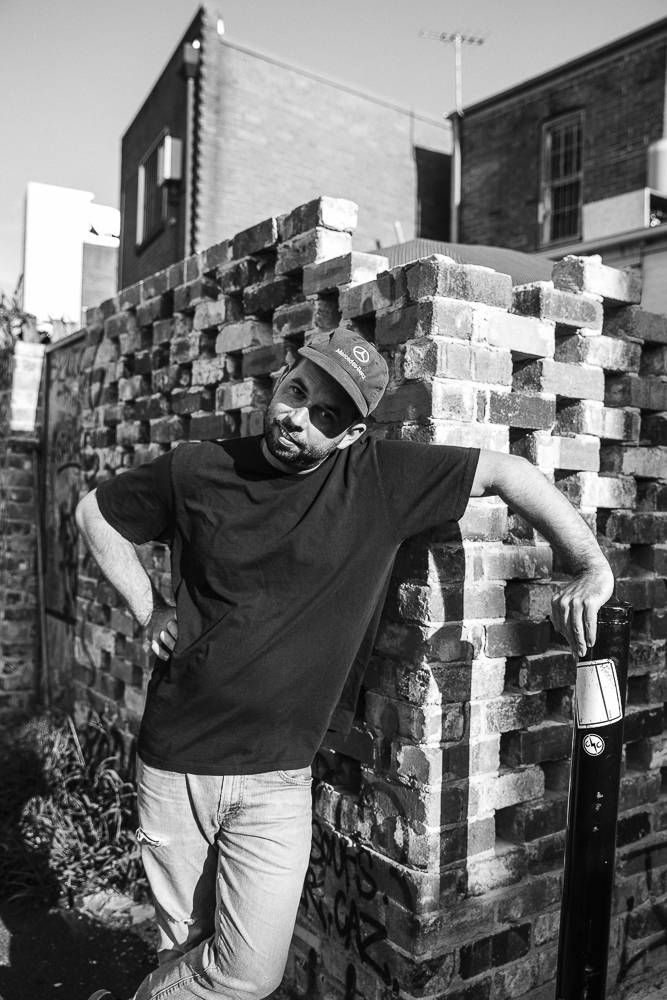
HAPPY: Sounds like you’re really riding a positive energy wave.
JACK GRACE: I’m trying to! I’ve come from a really good session today, I’m a bit more optimistic than I have been. So you’ve probably caught me off guard.
HAPPY: Well, thanks heaps.
JACK GRACE: Thanks.
